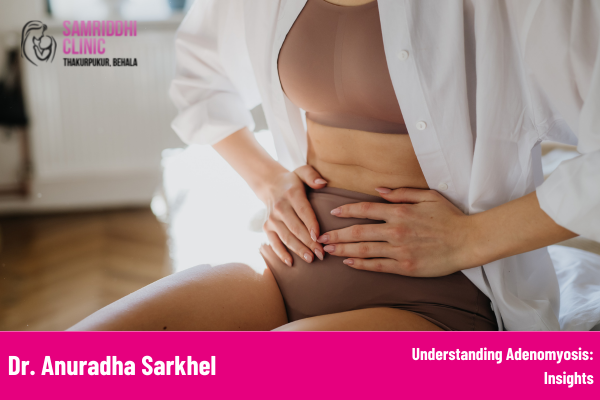Adenomyosis is a medical condition that affects many women, often leading to significant discomfort and disruption in daily life. Dr. Anuradha Sarkhel, one of the best lady gynecologists in Behala, South Kolkata, shares valuable insights into this condition.
What is Adenomyosis?
Adenomyosis occurs when the tissue that normally lines the uterus (endometrium) begins to grow into the muscular wall of the uterus (myometrium). This condition can lead to an enlarged uterus and often results in painful menstruation and heavy menstrual bleeding.
Symptoms of Adenomyosis
Women with adenomyosis may experience a variety of symptoms, including:
- Severe menstrual cramps or pelvic pain
- Heavy or prolonged menstrual bleeding
- Pain during intercourse
- A feeling of fullness or pressure in the lower abdomen
These symptoms can vary in intensity and may worsen over time, significantly impacting a woman’s quality of life.
Diagnosis and Treatment Options
Diagnosing adenomyosis typically involves a thorough medical history, physical examination, and imaging tests, such as ultrasound or MRI. Dr. Sarkhel emphasizes the importance of accurate diagnosis to differentiate adenomyosis from other conditions like fibroids.
Treatment options for adenomyosis depend on the severity of symptoms and a woman’s reproductive plans:
- Medications: Pain relievers and hormonal therapies can help manage symptoms.
- Non-invasive Procedures: In some cases, options like endometrial ablation may be recommended to reduce heavy bleeding.
- Surgical Options: For women with severe symptoms or those who wish to avoid future complications, a hysterectomy may be the most effective treatment.
Conclusion
If you suspect you have adenomyosis or are experiencing related symptoms, it’s essential to consult a qualified gynecologist like Dr. Anuradha Sarkhel. With her expertise, you can explore the best treatment options tailored to your needs.

